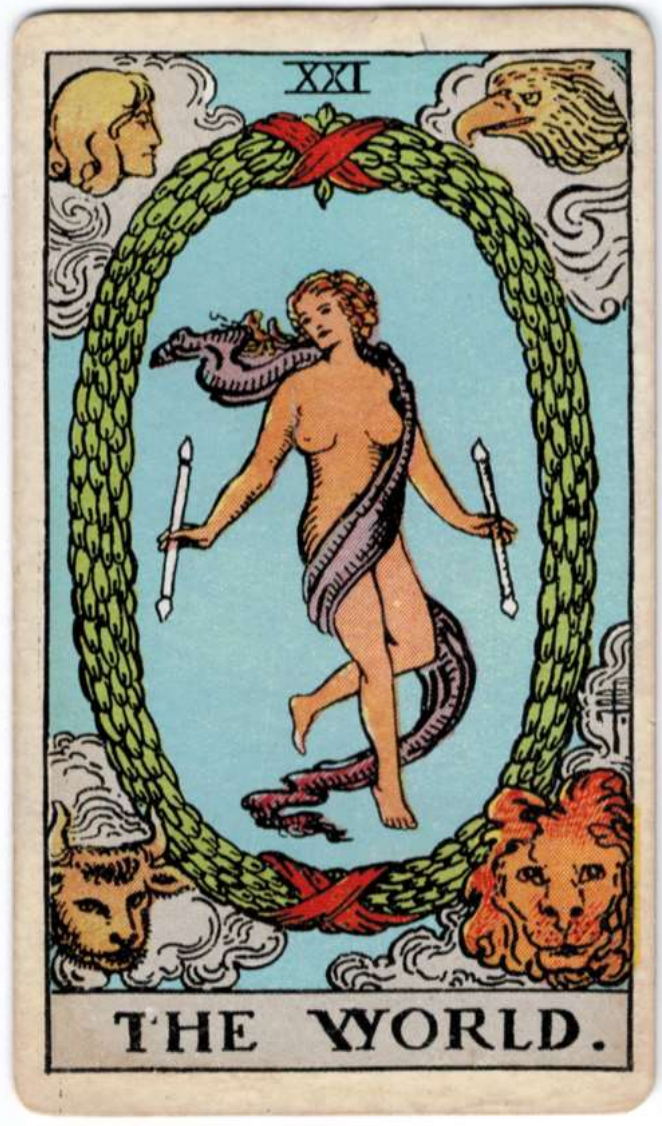
The origin of Tarot
The origin of tarot is a mystery. What we do know is it was used in Italy as early as the fifteenth century as a popular card game. The cards are said to relate to many mystical systems such as - Egyptian mysteries, Hermetic philosophy, the Kabbalah and alchemy. The tarot deck is used mostly as a tool for divination - the practice of seeking knowledge of the future or the unknown by supernatural means.
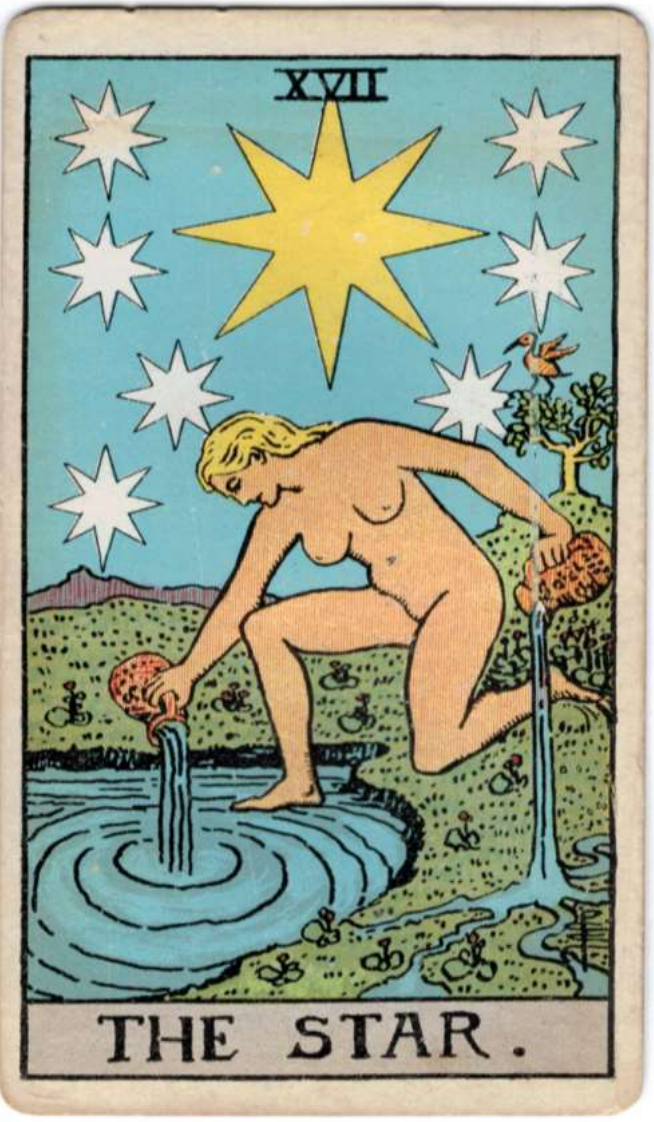
What is it used for?
Divination. When used for divination, it generally involves a seeker, and a reader. The reader lays out the chosen cards in a pattern called a spread. The reader then interprets the combination of cards and their positions to shed light on the seekers questions.
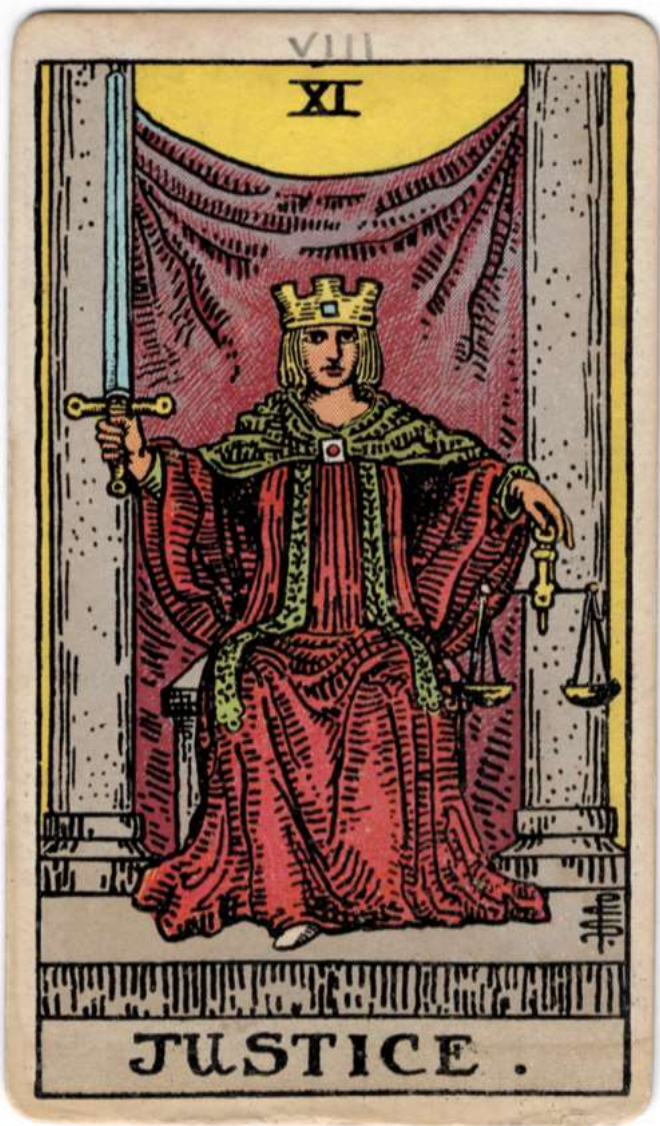
This process is often depicted in a negative light, associated with black magic and bad luck. The idea of an old witch, sitting in a dark room, reading cards. This idea is also held by some religions, who condemn the cards and their symbolism.
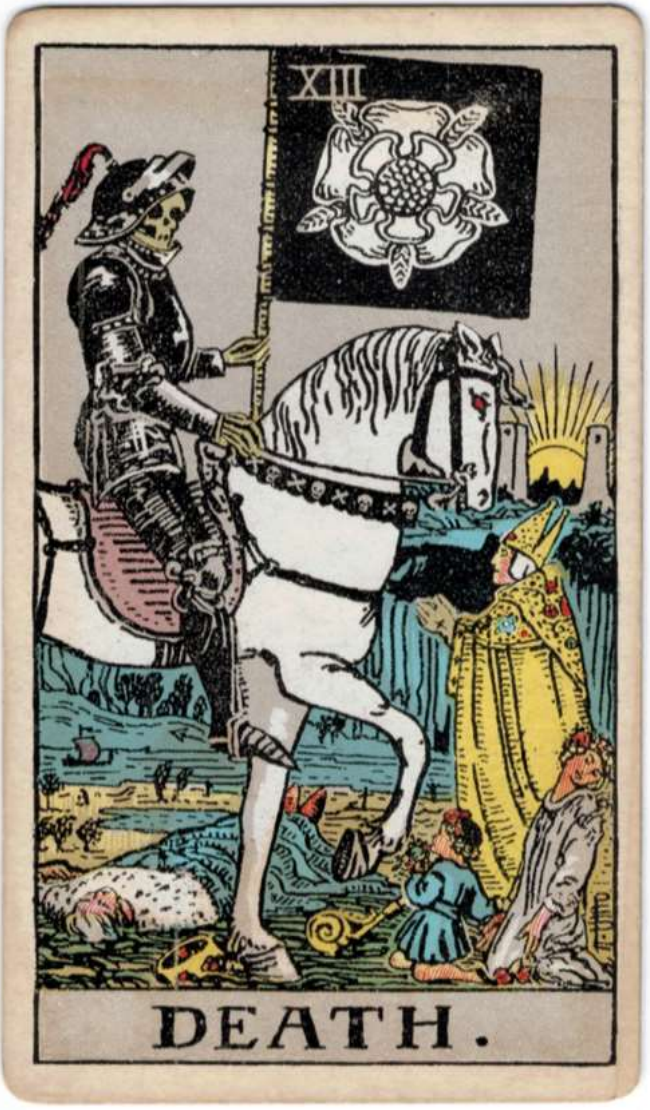
But lets put the shadowy dark images to the side for a moment and let's consider the deck for what it is - a deck of picture cards.
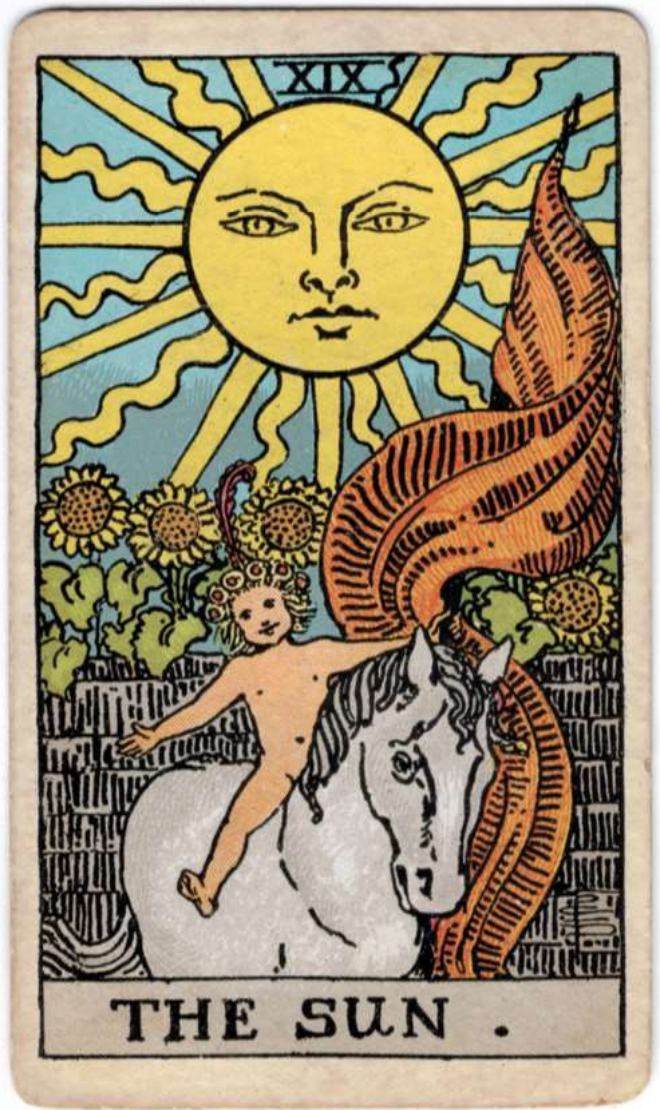
The cards can be used as a way of storing and filing information, through memory, association and our imagination. We can influence our subconscious as well as the collective unconscious - tap into our own awareness through mental associations and by practising applying our attention to an image or symbol.
We may never understand the power of our unconscious, but we can practise exploring our own abilities. The cards intriguing pictures and patterns are perfect for tapping into the unconscious. This is what we would call the personal aspect of the tarot. The images capture universal moments representing archetypes. You can see each card in your own way, but, at the same time, you are supported by the understanding others have found.
Let's begin an introduction into the first ten Major Arcana cards of the tarot deck.
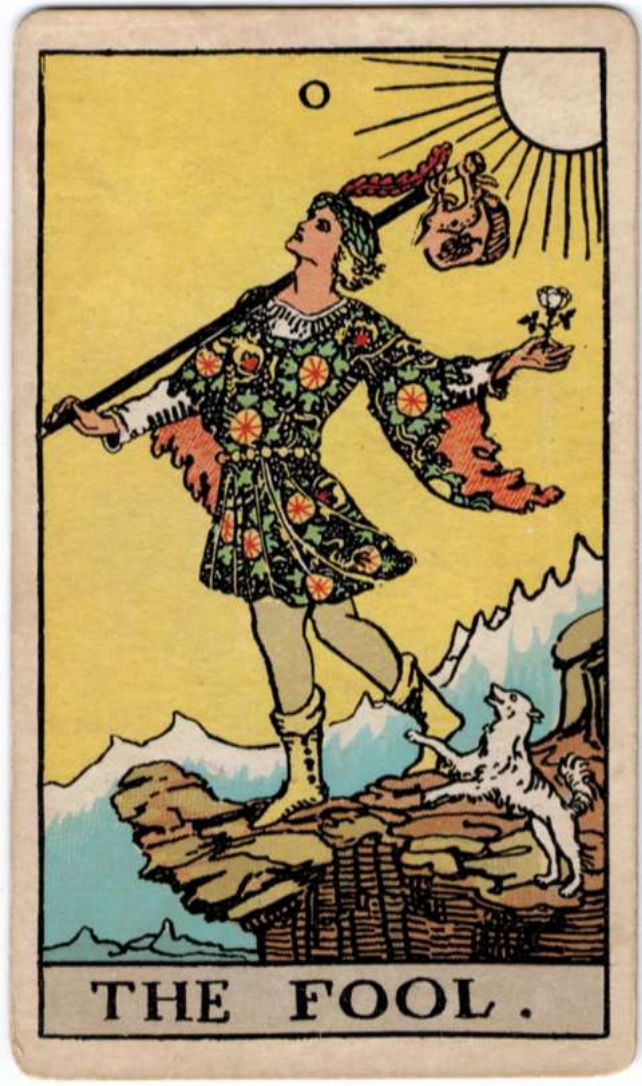
- 0 - The Fool
The 0 card lies at the beginning of the major arcana, but at the same time it is separate from the rest of the deck. In medieval times the court jester was not expected to follow the same rules as others. He had a license to observe, and to then poke fun. Unpredictable, and full of surprises he is a reminder of the unlimited potential in every moment. Nothing is certain.
The fools innocence is what sustains him and brings him joy. A signifier of new beginnings, new journeys, the fool will guide you on the path of adventure, wonder and spiritual growth. A reminder to keep your faith, trust yourself. In a decisive moment, the Fool tells you to follow your heart and believe in yourself no matter how crazy or foolish your impulses may seem.
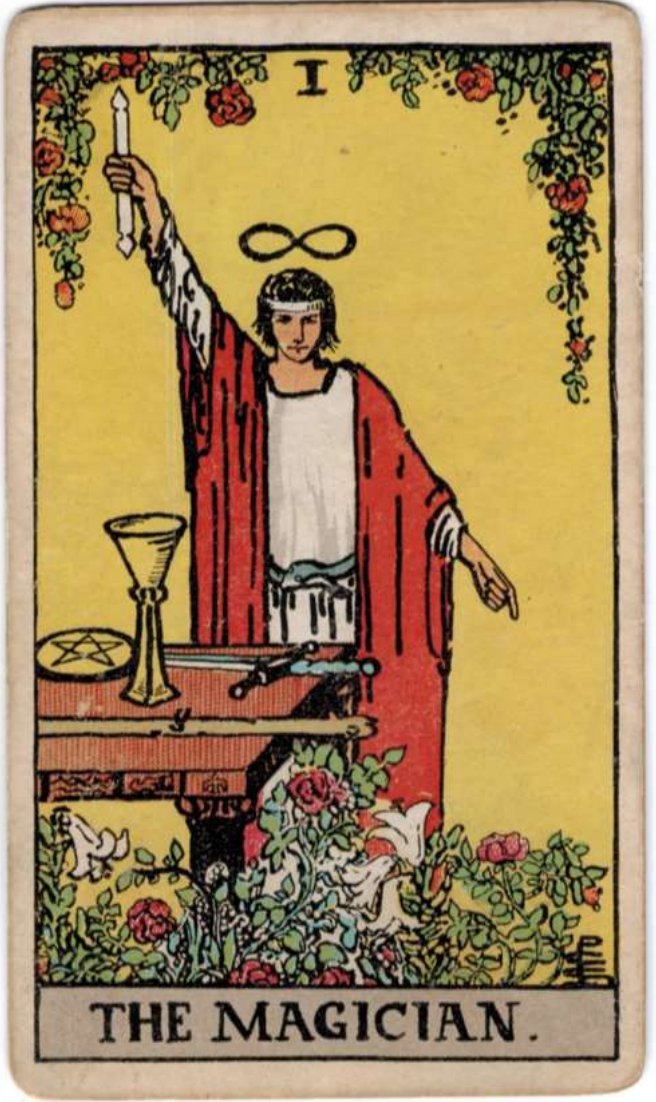
- 1 - The Magician
The magician is the active, masculine principle - the ultimate achiever. Symbolising the power to tap into universal forces to be used for creative purposes. Notice his stance. Like a lightening rod, one arm extended up into the devine for inspiration, and the other toward earth to ground the potent energy. His abilities appear magical at times because his will helps him achieve what seem to be miracles.
What makes the Magician so powerful?He is not afraid to act. He believes in himself and is willing to put that belief on the line. He never hesitates because he understands his situation exactly. The Magician can focus with single-minded determination. As long as he remembers the divine source of his power, the Magician remains the perfect conduit for miracles.
In a reading, the Magician implies that the primal forces of creativity are yours if you can claim your power and act with awareness and concentration. This card is a signal to act and act now.
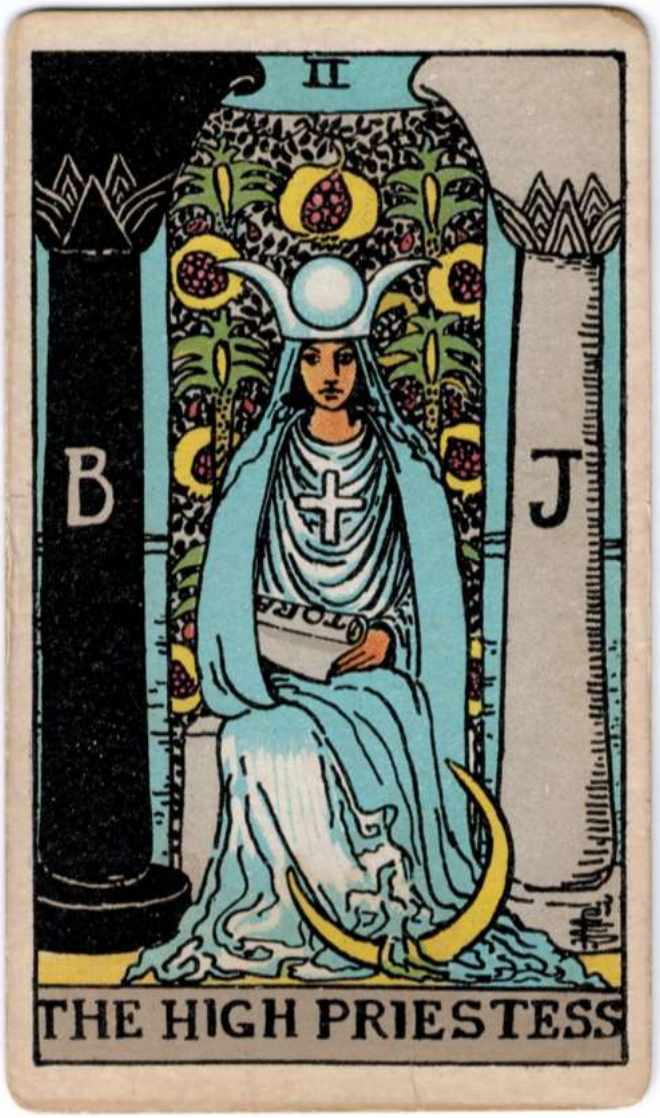
- 2 - The High Priestess
The High Priestess - The guardian of the unconscious. Sitting in front of the thin veil of unawareness, all that separates us from our inner landscape. She contains within herself the secrets of these realms . "Be still and know that I am God.”
The High Priestess is the feminine principle that balances the masculine force of the Magician. The feminine archetype is split between the High Priestess and the Empress. The High Priestess is the mysterious unknown. The empress represents women role as the support for life.
In readings, the card challenges you to go deeper, and to look beyond the surface into what is hidden and obscure, to remember the unlimited possibilities you hold within yourself. The High Priestess can represent a time of waiting and allowing. It is not always necessary to act to achieve your goals. Sometimes they can be realised through a stillness that gives desire a chance to flower within the fullness of time.
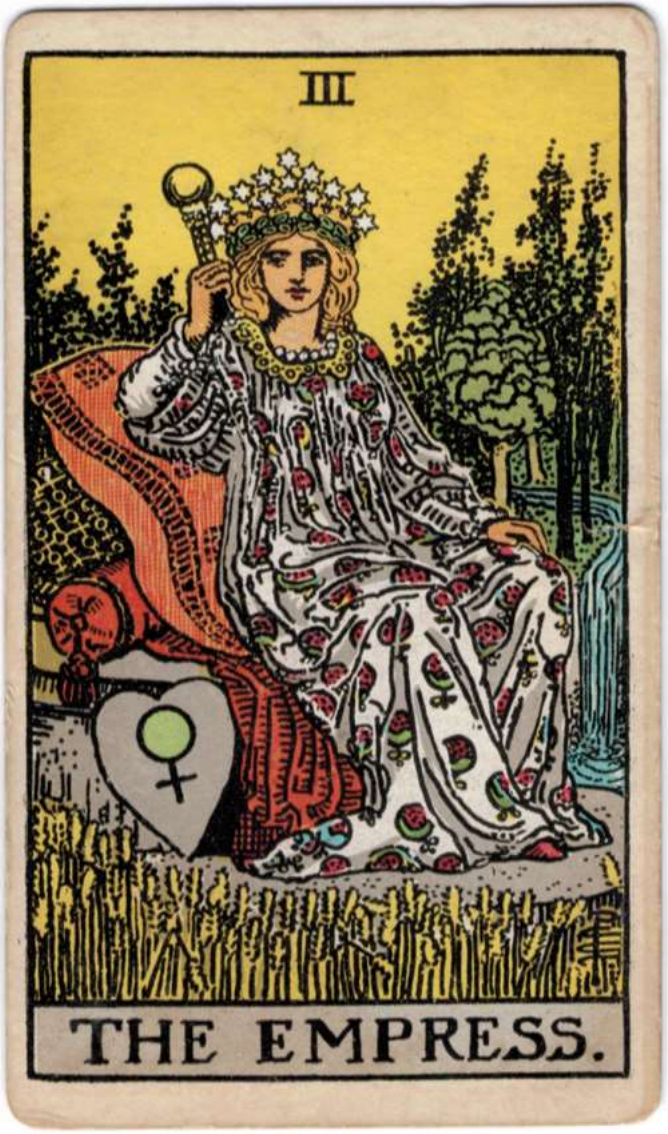
- 3 - The Empress
The Empress is the other half of the female archetype in the major arcana. The Epress representing the fertile, life-giving Mother. The Epresses pushes you to strengthen your connections with the natural world. Too often false sophistications and pleasures take us far from our roots. Let the Empress remind you to keep your feet firmly planted in the Earth.
In readings the Empress can refer to any aspect of Motherhood. She can suggest material reward, but only with the understanding that riches go with a generous and open spirit. The Empress asks you to embrace the principle of life and enjoy its bountiful goodness.
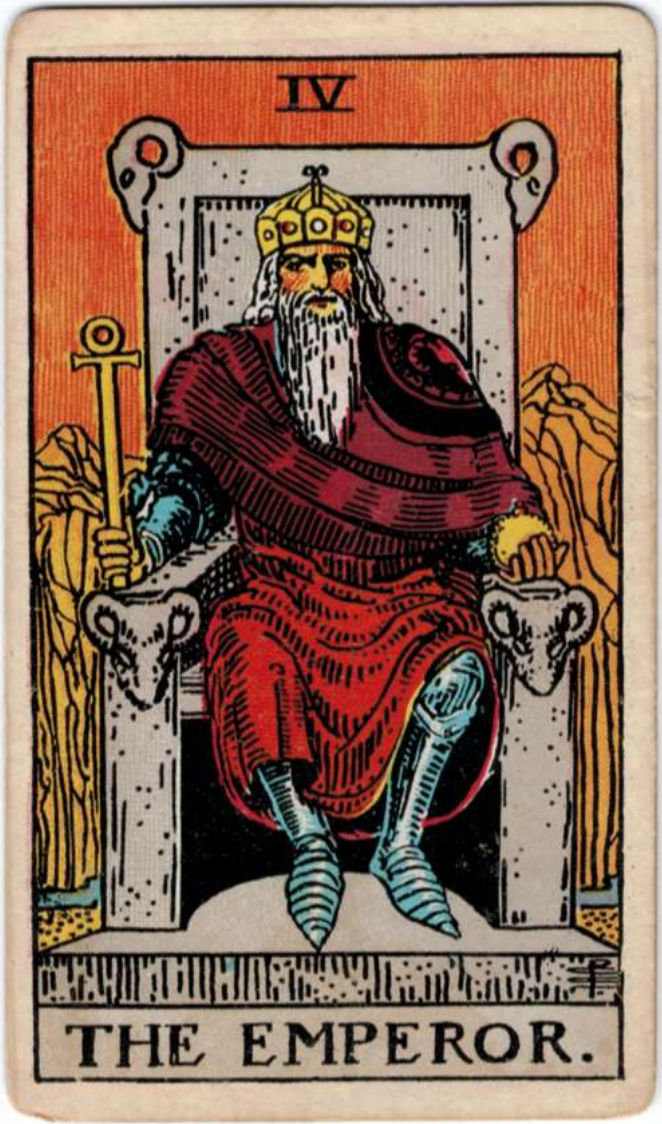
- 4 - The Emperor
The figure of the Emperor says much about the essential qualities of this card. We see a stern, commanding figure seated on a stone-slab throne. His back is straight, and his eyes meet ours directly. He is confident of his complete authority to rule.
The Emperor represents structure, order and regulation - forces to balance the free-flowing, lavish abundance of the Empress. He advocates a four-square world where trains are on time, games are played by rules, and commanding officers are respected. In chaotic situations, the Emperor can indicate the need for organization. Loose ends should be tied up, and wayward elements, harnessed. In situations that are already over-controlled, he suggests the confining effect of those constraints.
The Emperor can represent an encounter with authority or the assumption of power and control. As the regulator, he is often associated with legal matters, disciplinary actions, and officialdom in all its forms. He can also stand for an individual father or archetypal Father in his role as guide, protector and provider.
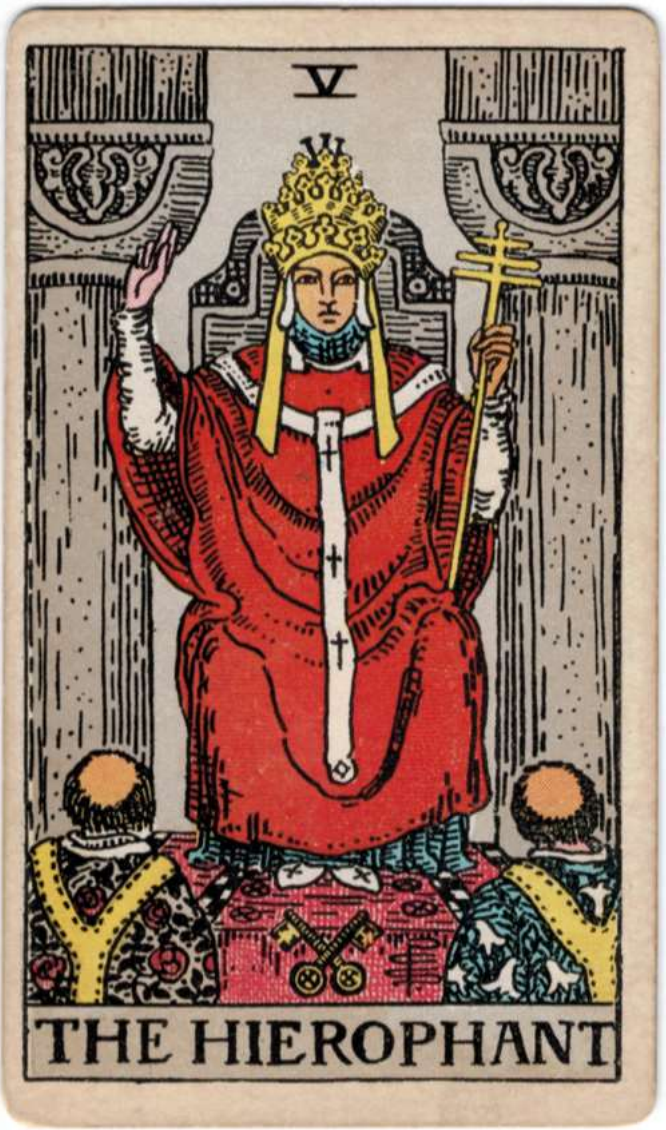
- 5 - The Hierophant
A Hierophant is someone who interprets secret knowledge. The Hierophant represents churches, schools and teams because his realm is structured groups with rules and assigned roles. Such environments emphasize belief systems - facts, rules, procedures, and ritual. Members are rewarded for following conventions. They develop a group identity.
In readings, the Hierophant often represents learning with experts or knowledgeable teachers. This card also stands for institutions and their values. The Hierophant is a symbol of the need to conform to rules or fixed situations. His appearance in a reading can show that you are struggling with a force that is not innovative, free-spirited or individual. Groups can be enriching or stifling, depending on circumstances. Sometimes we need to follow a program or embrace tradition, other times, we need to trust ourselves.
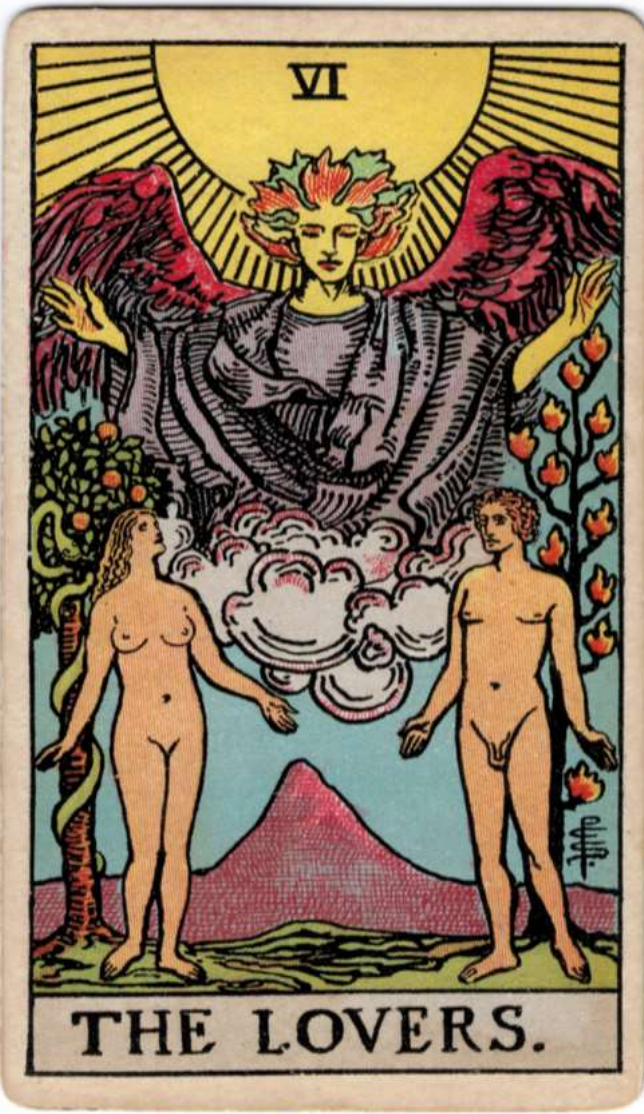
- 6 - The Lovers
The Lovers is one card that is easy to remember. Love and sex, as you'd expect, this card represents both. The urge for union in its highest form. That is why an angel is blessing the bond between the man and woman on this card.
In readings, Card 6 often refers to a relationship that is based on deep love - the strongest force of all. The relationship may not be sexual, although it often is or could be. More generally, the Lovers can represent the attractive force that draws any two entities together in a relationship - whether people, ideas, events, movements or groups.
The Lovers can indicate a moral or ethical crossroads - a decision point where you must choose between the high road or the low road. This card can also represent your personal beliefs because to make such a decision you must know where you stand. Following your own path can mean going against those who are urging you in a direction that is wrong for you.
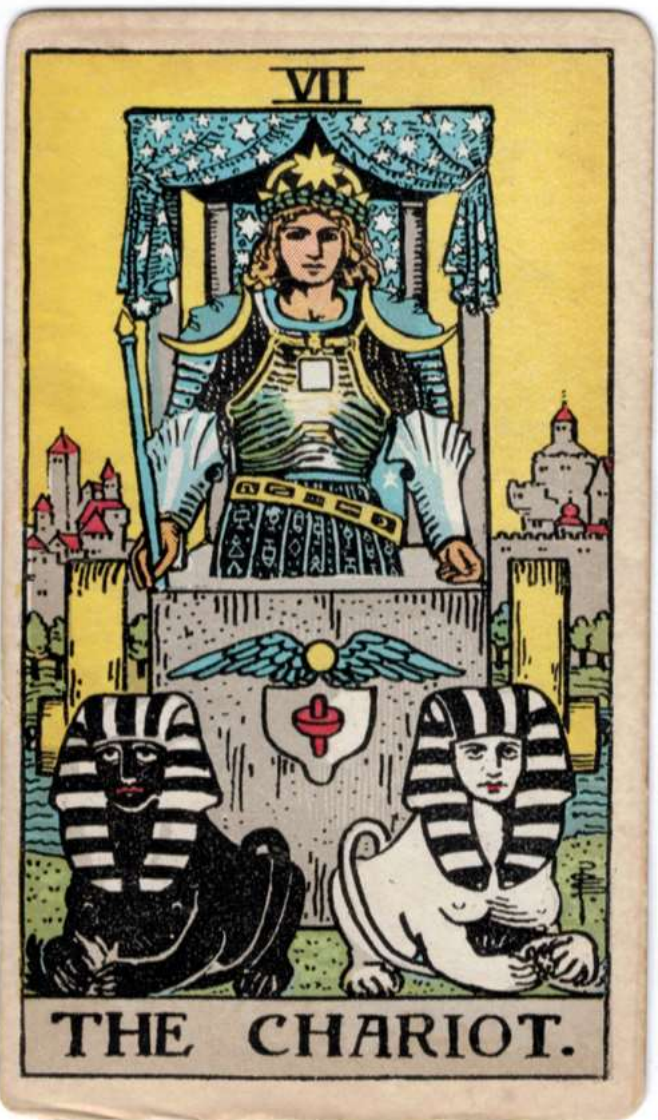
- 7 - The Chariot
Card 7 represents the victories that are possible through willpower and self-mastery. A military image is appropriate for the Chariot because this card stands for the strengths associated with combat - discipline, grit, determination and assertiveness.
The Chariot represents the positive aspects of the ego. A healthy ego is one that is strong and self-assured. It knows what it wants and how to get it. We can get annoyed at someone whose ego is too healthy, but we often turn to that person to lead us through difficult moments. We know he or she won't be wishy-washy.
In readings, the Chariot often appears when hard control is or could be in evidence. At its best, hard control is not brutal, but firm and direct. It is backed up by a strong will and great confidence. The Chariot can mean self-control or control of the environment. This card also represents victory. There are many types of wins; the Chariot's is of the win-lose type. Your success comes from beating the competition to become number one. Such moments are glorious in the right circumstances.
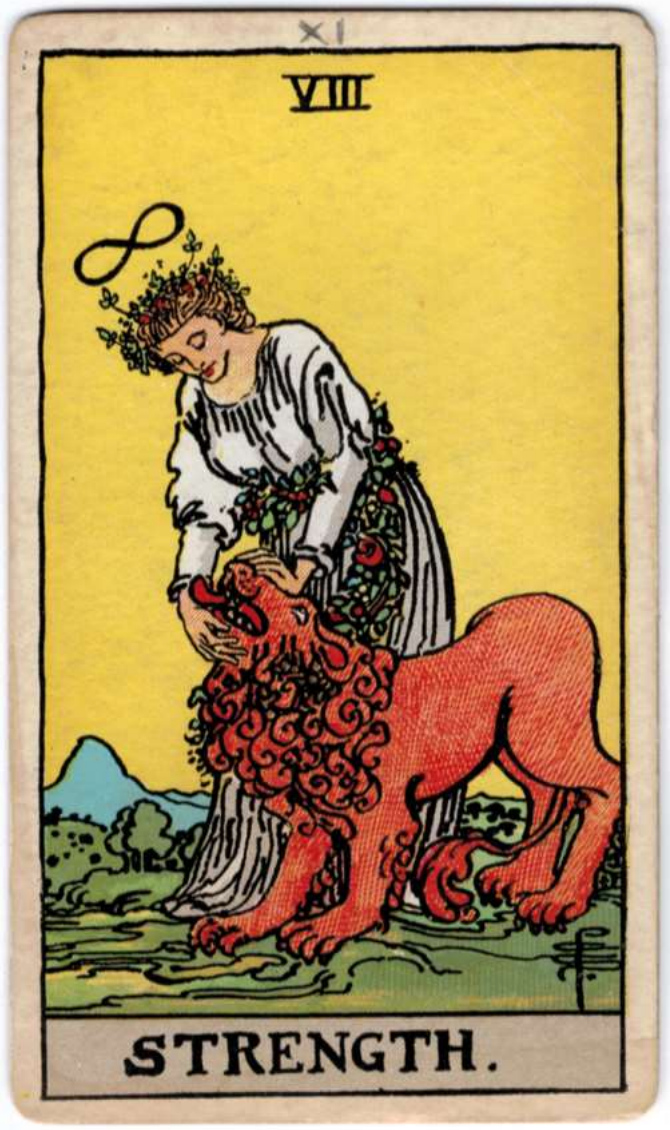
- 8 - Strength
Usually we think of strength in physical terms - big arms, powerful legs - but there is also inner strength. Inner strength comes from an exercise of the heart muscle. It is perseverance, courage, resolve and composure - qualities that help us endure when times are tough. In the past, a person with inner strength was commonly said to have character; he or she could be counted on in the darkest moments. Card 8 represents this energy of quiet determination. Strength is not a flashy card, but one that is solid and reliable.
Card 8 also represents patience and compassion. Getting angry is easy when events turn sour, but dealing calmly with frustration takes great strength. So does accepting others and forgiving mistakes. We need strength to mold situations softly. The Chariot controls through mastery and authority. Card 8 is more subtle, even loving. Notice how the lion (itself a symbol of strength) is being guided and tamed by the woman's gentle hands.
Card 8 will appear in a reading when its qualities are needed. It can be a reminder not to despair or give up. You have the inner strength to endure and triumph. If you are pushing too hard, you need to withdraw for the moment and be patient. If other people or circumstances are driving you crazy, remember the strength that comes with love and forbearance. These will see you through the hardest moments.
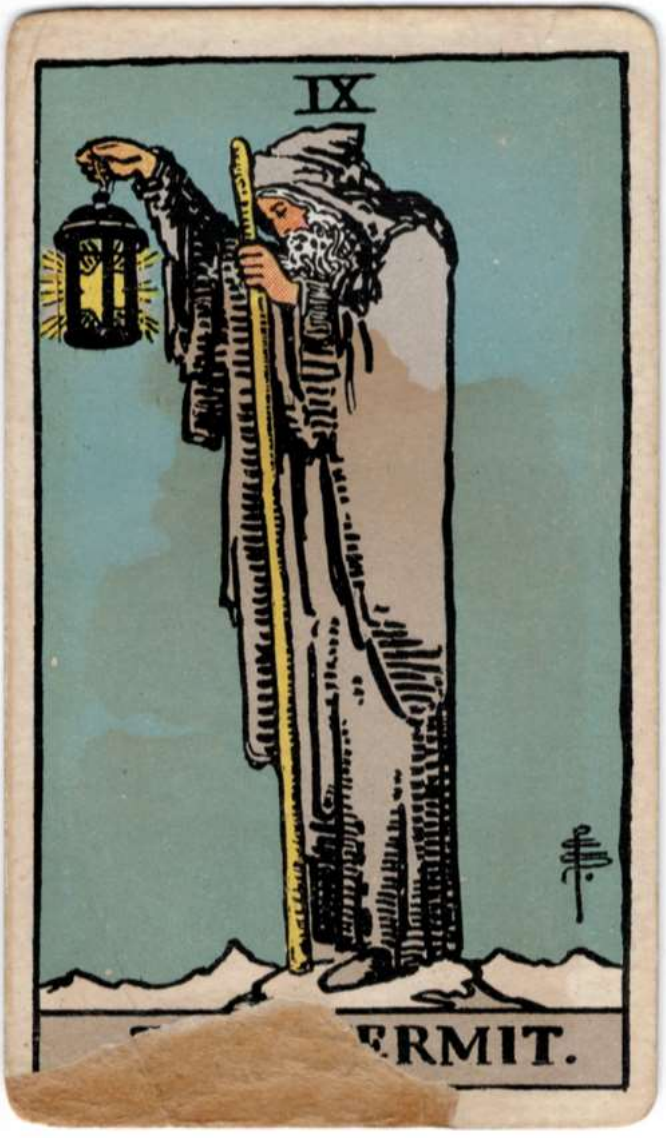
- 9 - The Hermit
There comes a point in life when we begin to question the obvious. We sense that there is a deeper reality and begin to search for it. This is mainly a solitary quest because answers do not lie in the external world, but in ourselves. The hermit on Card 9 reminds us of Diogenes, the Greek ascetic who is said to have gone out with a lantern in hand to search for an honest man. Diogenes is a symbol of the search for truth that the Hermit hopes to uncover by stripping away all diversions.
In readings, the Hermit often suggests a need for time alone - a period of reflection when distractions are limited. In times of action and high energy, he stands for the still center that must be created for balance. He can also indicate that withdrawal or retreat is advised for the moment. In addition, the Hermit can represent seeking of all kinds, especially for deeper understanding or the truth of a situation. "Seek, and ye shall find," we have been told, and so the Hermit stands for guidance as well. We can receive help from wise teachers, and, in turn, help others as we progress.
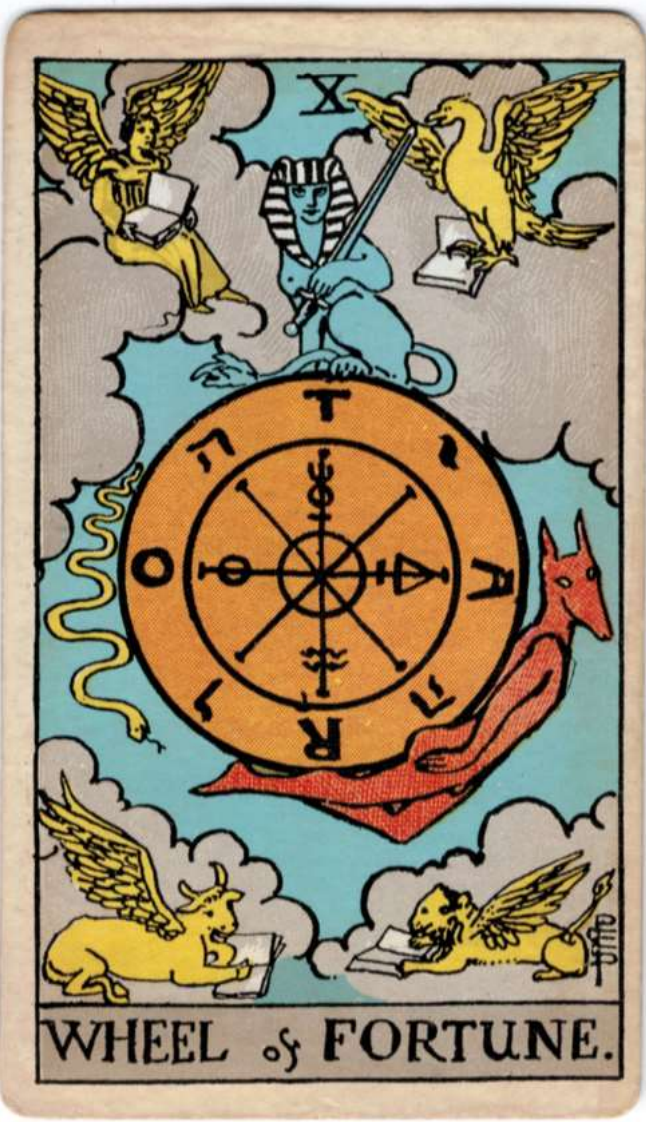
- 10 - Wheel of Fortune
The Wheel of Fortune is one of the few cards in the major arcana that does not have a human figure as a focal point. This is because its center is above the realm of man - in the higher levels (clouds) where the destinies of all are woven together in the tapestry of life. The tarot recognizes that each person sets his own path in life, but is also subject to the larger cycles that include him. We experience chance events that appear to be accidents although they are part of the great plan.
In readings, the Wheel of Fortune can indicate a vision or realization that strikes with great force. If you've been struggling with a problem or tough situation, this card can signal that you will find the answer if you stand back and view everything from a larger perspective.
Summary
The tarot is a mirror that reflects back to you the hidden aspects of our own unique awareness.
Meaning is a mysterious thing that arises at the junction of inner and outer realities, only when we are open to perceiving it. The tarot, being so rich in meaning and symbology allows us to discover deep truths about ourselves. By seeking meaning in this way we give things the chance to be revealed, and to be open, we can then experience life differently. Our path becomes clear and we bring together the scattered elements of our lives to fulfill our destinies.Sources: http://www.learntarot.com/cards.htm & https://en.wikipedia.org/wiki/Tarot
Recommended books:
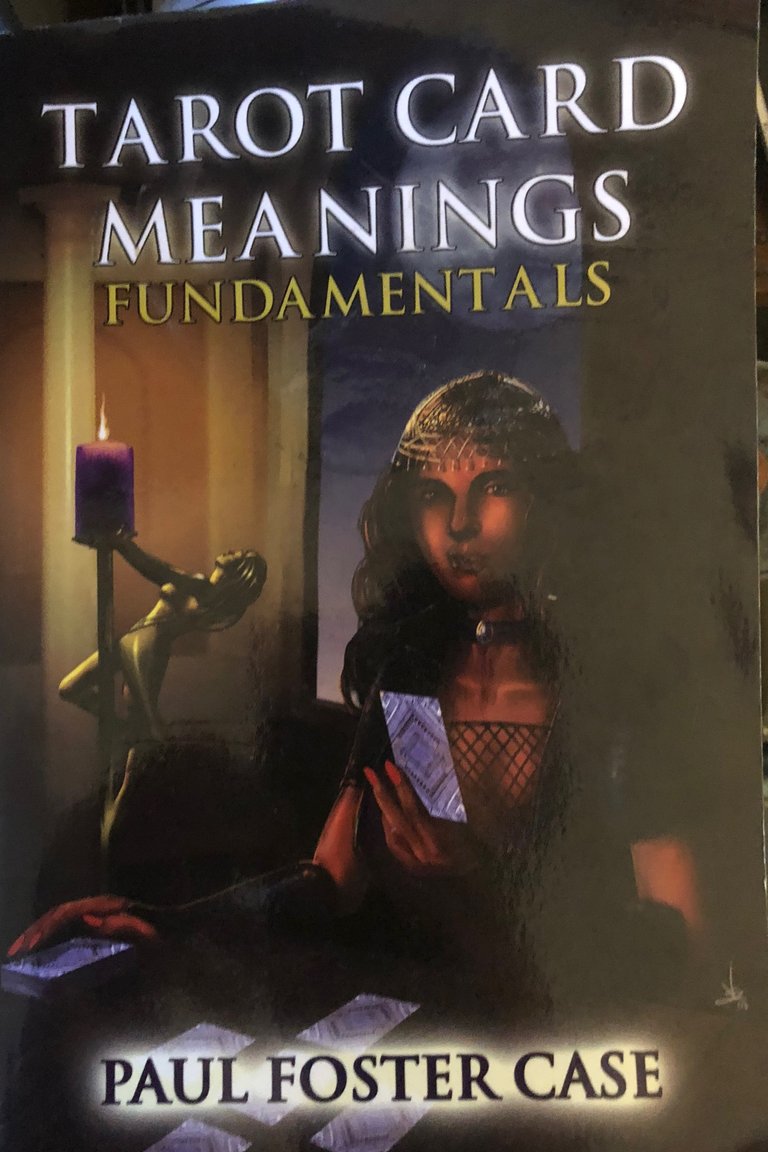
Thanks for sharing, I find Tarot cards fascinating. I used to get my cards read by my friend Adam, he was always right! Haven't had them read for a while now as he moved to Mexico.
Shame about your buddy. Buy yourself a deck, they have so many uses.A great focal point for concentration.
Congratulations @samcook! You received a personal award!
Click here to view your Board
Do not miss the last post from @steemitboard:
Congratulations @samcook! You received a personal award!
You can view your badges on your Steem Board and compare to others on the Steem Ranking
Vote for @Steemitboard as a witness to get one more award and increased upvotes!